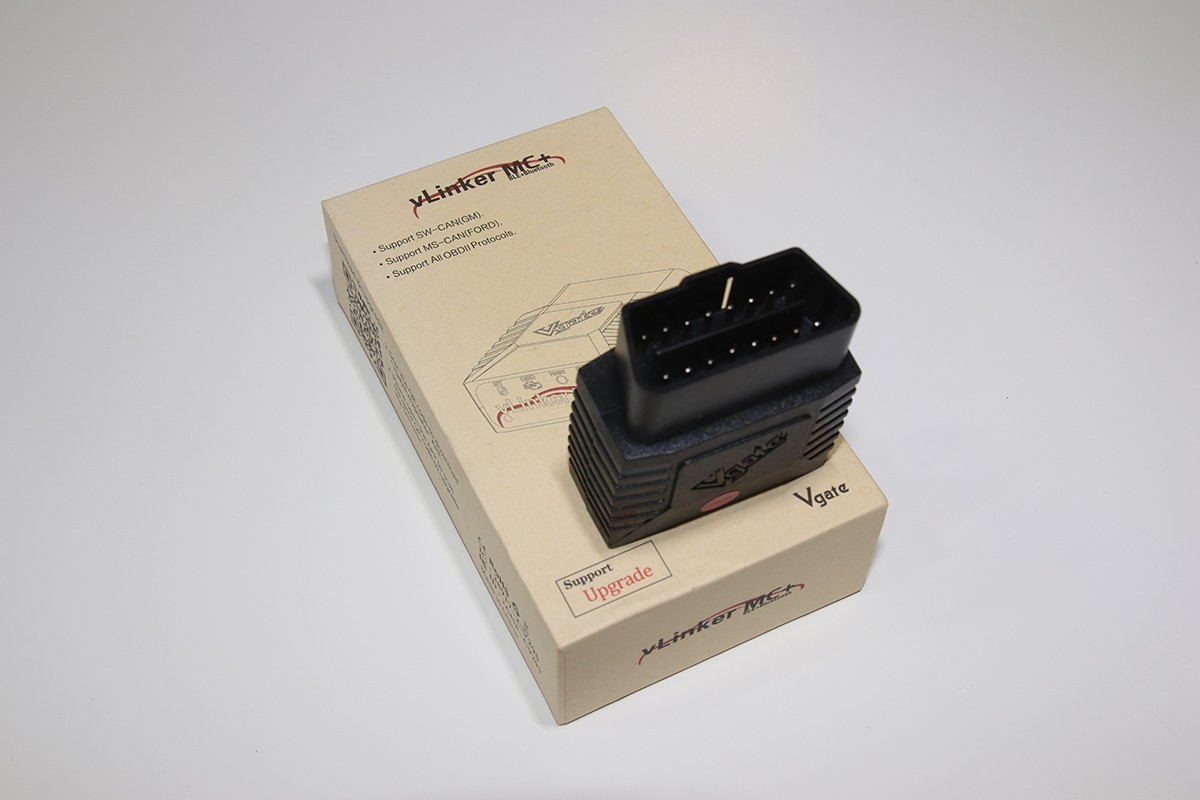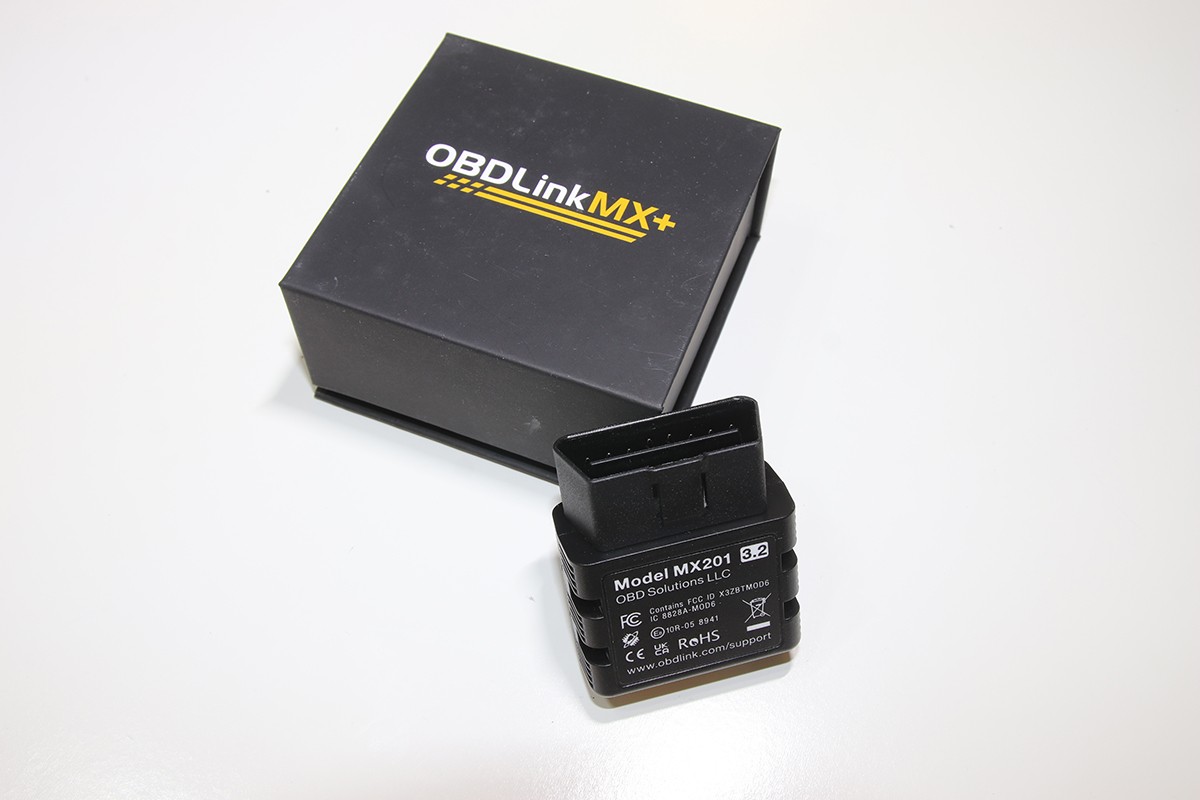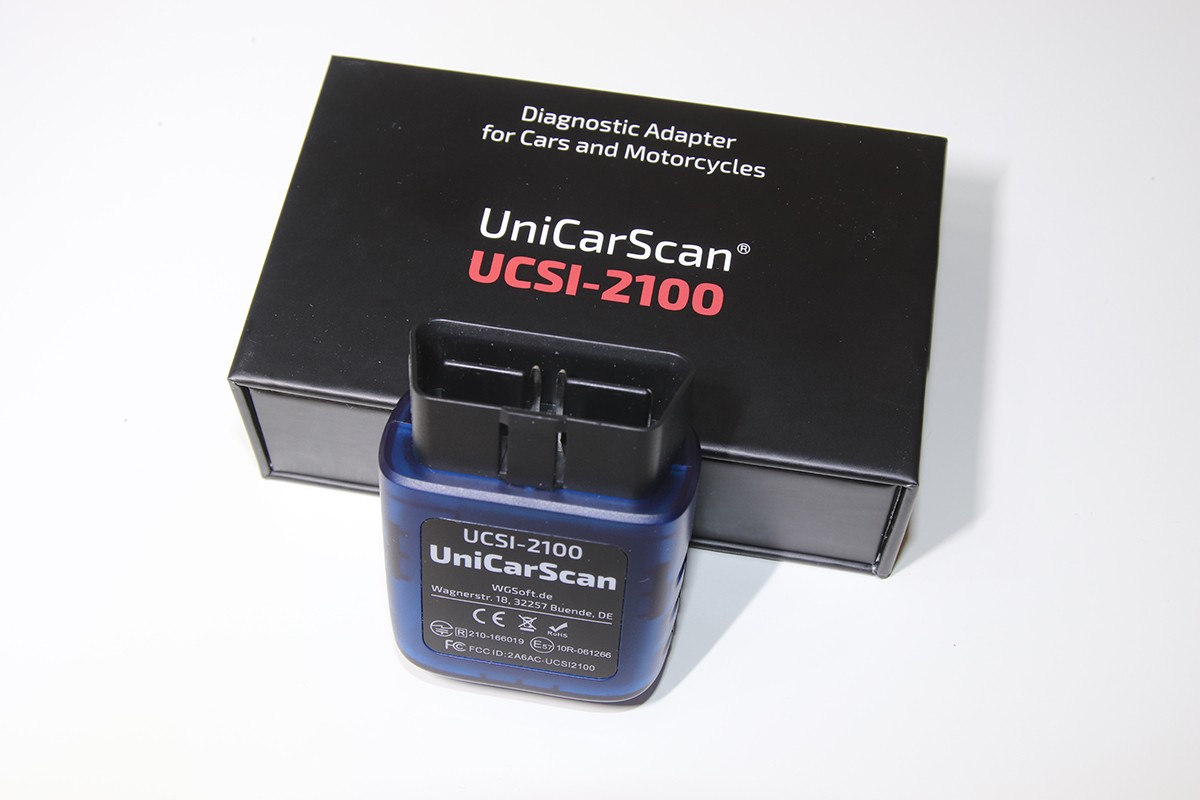Are you searching for the Best Bluetooth Car Diagnostic Scanner to troubleshoot your vehicle’s issues? CAR-TOOL.EDU.VN offers comprehensive information and comparisons to help you find the perfect tool for your needs. Our guide simplifies the complexities of automotive diagnostics, providing solutions for mechanics and car enthusiasts alike. Unlock your vehicle’s potential with the right scan tool, and gain insights into its performance and health. We aim to provide you with the best OBD2 scanner recommendations, troubleshooting tips, and the knowledge you need to make informed decisions.
Contents
- 1. Understanding Bluetooth Car Diagnostic Scanners
- 1.1 Benefits of Using a Bluetooth Car Diagnostic Scanner
- 1.2 Key Features to Look For
- 2. Top Bluetooth Car Diagnostic Scanners on the Market
- 2.1 vLinker MC+
- 2.2 OBDeleven
- 2.3 TopDon TopScan
- 2.4 OBDLink CX
- 2.5 OBDLink MX+
- 2.6 UniCarScan UCSI-2100
- 2.7 vLinker FD+
- 3. How to Choose the Right Bluetooth Car Diagnostic Scanner
- 3.1 Vehicle Compatibility
- 3.2 OBD2 Protocol Support
- 3.3 App Features and User Interface
- 3.4 Diagnostic Capabilities
- 3.5 Budget
- 4. Step-by-Step Guide to Using a Bluetooth Car Diagnostic Scanner
- 4.1 Download and Install the App
- 4.2 Connect the Scanner to Your Car’s OBD2 Port
- 4.3 Pair the Scanner with Your Device
- 4.4 Perform a Scan
- 4.5 Interpret the Results
- 4.6 Clear the Codes (Optional)
- 5. Advanced Diagnostic Techniques
- 5.1 Live Data Monitoring
- 5.2 Freeze Frame Data
- 5.3 System Tests and Component Activation
- 5.4 Data Logging and Analysis
- 6. Maintaining and Updating Your Bluetooth Car Diagnostic Scanner
- 6.1 Keep the Scanner Clean
- 6.2 Store the Scanner Properly
- 6.3 Update the App and Firmware
- 6.4 Check for Recalls and Updates
- 7. Common Troubleshooting Tips
- 7.1 Scanner Won’t Connect
- 7.2 App Won’t Recognize the Scanner
- 7.3 Inaccurate Data
- 7.4 Scanner Freezes or Crashes
- 8. The Future of Car Diagnostics
- 8.1 Artificial Intelligence (AI)
- 8.2 Cloud-Based Diagnostics
- 8.3 Enhanced Connectivity
- 8.4 Integration with Advanced Driver-Assistance Systems (ADAS)
- 9. Expert Opinions and Recommendations
- 10. Frequently Asked Questions (FAQs)
- 10.1 What is an OBD2 scanner?
- 10.2 How do I know if my car is OBD2 compliant?
- 10.3 Can a Bluetooth scanner damage my car?
- 10.4 Do I need to be a mechanic to use a Bluetooth scanner?
- 10.5 What is the difference between a Bluetooth scanner and a professional scan tool?
- 10.6 Can a Bluetooth scanner reset my check engine light?
- 10.7 What are the best apps to use with a Bluetooth scanner?
- 10.8 How often should I scan my car for diagnostic trouble codes?
- 10.9 Where can I buy a Bluetooth car diagnostic scanner?
- 10.10 How do I update the firmware on my Bluetooth scanner?
1. Understanding Bluetooth Car Diagnostic Scanners
What exactly is a Bluetooth car diagnostic scanner, and why should you consider using one?
A Bluetooth car diagnostic scanner is a device that connects to your car’s On-Board Diagnostics II (OBD2) port and communicates wirelessly with your smartphone, tablet, or laptop. It allows you to read and interpret diagnostic trouble codes (DTCs), monitor real-time data, and perform various tests to diagnose and resolve vehicle issues. According to a study by the National Institute for Automotive Service Excellence (ASE), using diagnostic scanners can reduce repair time by up to 40%.
1.1 Benefits of Using a Bluetooth Car Diagnostic Scanner
Why opt for a Bluetooth scanner over traditional handheld devices?
Bluetooth scanners offer several advantages:
- Portability and Convenience: They are compact and easy to carry, allowing you to diagnose your car anywhere, anytime.
- Cost-Effectiveness: Bluetooth scanners are generally more affordable than professional-grade scan tools.
- User-Friendly Interface: Paired with smartphone apps, they provide intuitive interfaces for easy navigation and data interpretation.
- Wireless Connectivity: Bluetooth connectivity eliminates the need for cables, providing a hassle-free diagnostic experience.
- Data Logging and Sharing: Many apps allow you to log data, share reports with mechanics, and track your car’s performance over time.
1.2 Key Features to Look For
What features should you prioritize when selecting a Bluetooth car diagnostic scanner?
When choosing a Bluetooth scanner, consider the following:
- Compatibility: Ensure the scanner supports your car’s make and model.
- Supported Protocols: Check if it supports all OBD2 protocols, including CAN, ISO, and PWM.
- App Compatibility: Look for scanners with user-friendly and feature-rich apps.
- Data Accuracy: Choose scanners that provide accurate and reliable data.
- Update Availability: Ensure the scanner receives regular updates to support new vehicles and features.
- Customer Support: Opt for brands that offer excellent customer support and documentation.
 OBD2 port
OBD2 port
2. Top Bluetooth Car Diagnostic Scanners on the Market
What are some of the best Bluetooth car diagnostic scanners currently available?
Here are some top-rated Bluetooth scanners known for their performance, features, and reliability:
2.1 vLinker MC+
What makes the vLinker MC+ a standout choice?
The vLinker MC+ is praised for its ease of use and comprehensive diagnostics. It features a clear display to show connection status and supports various third-party apps. According to user reviews, it accurately diagnosed a parking sensor fault on an Audi A3.
- Pros: Clear display, easy to connect, supports multiple apps.
- Cons: Wide choice of apps may require some trial and error.
- Compatibility: Supports a wide range of vehicles and OBD2 protocols.
- Key Features: Reads and clears DTCs, live data monitoring, fuel consumption calculation, acceleration time measurement.
2.2 OBDeleven
Why is the OBDeleven considered an Editor’s Choice?
The OBDeleven is a no-nonsense fault code scanner tailored for VAG (Volkswagen Audi Group), BMW, and Rolls-Royce vehicles. Its dedicated app provides straightforward scanning and in-depth system checks.
- Pros: Simple to use, tailored for specific makes, performs in-depth scans.
- Cons: Better suited to VAG, BMW, and a few other makes.
- Compatibility: Primarily designed for VAG, BMW, and Rolls-Royce vehicles.
- Key Features: Fault code scanning, one-click app functionality (with subscription), live data (on select makes).
2.3 TopDon TopScan
What sets the TopDon TopScan apart from the competition?
The TopDon TopScan is known for its excellent dedicated software for finding faults. While it had compatibility issues with 32-bit Android phones, it offers a range of hot functions like oil service and battery resets.
- Pros: Excellent dedicated software for finding faults.
- Cons: Doesn’t work on 32-bit Android phones, app subscription required after one year.
- Compatibility: Requires 64-bit Android phones or iPhones with iOS 10 or later.
- Key Features: Diagnostic trouble code (DTC) scanning, hot functions (oil service reset, battery reset).
2.4 OBDLink CX
Why should you consider the OBDLink CX for basic diagnostics?
The OBDLink CX is an entry-level Bluetooth scanner known for its compact size and free app. It provides useful readings for engine RPM, speed, MAF pressure, battery voltage, and fuel.
- Pros: Free app, works with other apps like BimmerCode.
- Cons: Very small device, difficult to unplug from OBDII port.
- Compatibility: Compatible with a wide range of vehicles and OBD2 protocols.
- Key Features: Engine RPM, speed, MAF pressure, battery voltage, fuel consumption readings, trip logging.
2.5 OBDLink MX+
Is the OBDLink MX+ worth the premium price?
The OBDLink MX+ is a top-of-the-range Bluetooth scanner with enhanced diagnostics and a range of free features. It excels in diagnostic analysis and offers features like live data analysis, a dashboard, graph function, map function, and performance calculation.
- Pros: Free app with enhanced diagnostics.
- Cons: More expensive than other options.
- Compatibility: Compatible with a wide range of vehicles and OBD2 protocols.
- Key Features: Enhanced diagnostics, live data analysis, dashboard, graph function, map function, performance calculation.
2.6 UniCarScan UCSI-2100
What makes the UniCarScan UCSI-2100 a versatile option?
The UniCarScan UCSI-2100 is a compact Bluetooth OBD2 scanner that works with a wide range of apps, making it suitable for various car makes and models. It offers comprehensive details and quick trouble code identification.
- Pros: Big choice of free dedicated and generic apps.
- Cons: Wide choice of apps may seem bewildering.
- Compatibility: Compatible with a wide range of vehicles and OBD2 protocols.
- Key Features: Trouble code identification, freeze-frame data, live data analysis.
2.7 vLinker FD+
Why is the vLinker FD+ a good entry-level choice?
The vLinker FD+ is a compact Bluetooth scanner that offers a good introduction to diagnostics and live data retrieval. It has a display to indicate connection status and is supported by a wide range of third-party apps.
- Pros: Supported by a wide range of third-party apps.
- Cons: Requires testing multiple apps to find the right one.
- Compatibility: Compatible with a wide range of vehicles and OBD2 protocols.
- Key Features: Fault diagnostics, live data viewing.
 OBDLink MX+ scanner
OBDLink MX+ scanner
3. How to Choose the Right Bluetooth Car Diagnostic Scanner
What factors should guide your decision when selecting a Bluetooth car diagnostic scanner?
Choosing the right scanner depends on your specific needs and priorities. Here are some key considerations:
3.1 Vehicle Compatibility
Does the scanner support your car’s make, model, and year?
Vehicle compatibility is crucial. Some scanners are designed for specific makes or models, while others offer broader compatibility. Always check the scanner’s specifications to ensure it supports your vehicle.
3.2 OBD2 Protocol Support
Does the scanner support all relevant OBD2 protocols?
Different vehicles use different OBD2 protocols. Ensure the scanner supports the protocols used by your car to access all available data.
3.3 App Features and User Interface
Is the app user-friendly and feature-rich?
The app is the primary interface for interacting with the scanner. Look for apps with intuitive navigation, comprehensive data displays, and useful features like data logging, report sharing, and advanced diagnostics.
3.4 Diagnostic Capabilities
What level of diagnostic capabilities do you need?
Consider the depth of diagnostics you require. Some scanners provide basic fault code reading, while others offer advanced functions like live data streaming, system tests, and component activation.
3.5 Budget
How much are you willing to spend on a Bluetooth car diagnostic scanner?
Bluetooth scanners range in price from affordable entry-level models to more expensive professional-grade options. Determine your budget and choose a scanner that offers the best value for your money.
4. Step-by-Step Guide to Using a Bluetooth Car Diagnostic Scanner
How do you effectively use a Bluetooth car diagnostic scanner to diagnose your vehicle?
Using a Bluetooth scanner is straightforward. Here’s a step-by-step guide:
4.1 Download and Install the App
Download the scanner’s dedicated app or a compatible third-party app from your app store. Install the app on your smartphone, tablet, or laptop.
4.2 Connect the Scanner to Your Car’s OBD2 Port
Locate the OBD2 port in your car. It’s typically located under the dashboard on the driver’s side. Plug the Bluetooth scanner into the OBD2 port.
4.3 Pair the Scanner with Your Device
Turn on your car’s ignition. Open the app on your device and follow the instructions to pair with the scanner via Bluetooth.
4.4 Perform a Scan
Once connected, use the app to perform a scan of your car’s systems. The app will display any diagnostic trouble codes (DTCs) and other relevant data.
4.5 Interpret the Results
Use the app to interpret the DTCs and understand the potential issues with your car. You can also consult online resources or a mechanic for further assistance.
4.6 Clear the Codes (Optional)
If you’ve resolved the issue, you can use the app to clear the DTCs and turn off the check engine light. However, be cautious when clearing codes, as it may erase valuable diagnostic information.
 UniCarScan UCSI-2100
UniCarScan UCSI-2100
5. Advanced Diagnostic Techniques
What advanced diagnostic techniques can you perform with a Bluetooth car diagnostic scanner?
Beyond basic fault code reading, Bluetooth scanners can perform advanced diagnostic techniques:
5.1 Live Data Monitoring
Monitor real-time data from your car’s sensors and systems. This can help you identify intermittent issues and diagnose performance problems.
5.2 Freeze Frame Data
Capture data snapshots when a fault occurs. This provides valuable information about the conditions that triggered the fault.
5.3 System Tests and Component Activation
Perform system tests and activate components to diagnose specific issues. This can help you isolate problems and verify repairs.
5.4 Data Logging and Analysis
Log data over time to track your car’s performance and identify trends. Analyze the data to diagnose recurring issues and optimize performance.
6. Maintaining and Updating Your Bluetooth Car Diagnostic Scanner
How do you ensure your Bluetooth car diagnostic scanner remains accurate and up-to-date?
Regular maintenance and updates are essential for optimal performance:
6.1 Keep the Scanner Clean
Clean the scanner’s connectors and housing regularly to ensure proper connectivity.
6.2 Store the Scanner Properly
Store the scanner in a safe and dry place to prevent damage.
6.3 Update the App and Firmware
Regularly update the scanner’s app and firmware to ensure compatibility with new vehicles and access the latest features.
6.4 Check for Recalls and Updates
Stay informed about recalls and updates from the manufacturer to address any known issues.
7. Common Troubleshooting Tips
What should you do if you encounter issues with your Bluetooth car diagnostic scanner?
Here are some common troubleshooting tips:
7.1 Scanner Won’t Connect
Ensure the scanner is properly plugged into the OBD2 port. Verify that Bluetooth is enabled on your device. Try restarting your device and the scanner.
7.2 App Won’t Recognize the Scanner
Check the app’s compatibility with your scanner. Ensure the scanner is properly paired with your device. Try reinstalling the app.
7.3 Inaccurate Data
Verify that the scanner supports your car’s make and model. Check for software updates. Consult online resources or a mechanic for assistance.
7.4 Scanner Freezes or Crashes
Close and reopen the app. Restart your device and the scanner. Check for app updates.
8. The Future of Car Diagnostics
How is car diagnostic technology evolving?
Car diagnostic technology is constantly evolving. Here are some emerging trends:
8.1 Artificial Intelligence (AI)
AI-powered diagnostic tools can analyze data and provide more accurate and comprehensive diagnoses.
8.2 Cloud-Based Diagnostics
Cloud-based platforms allow for remote diagnostics and data sharing.
8.3 Enhanced Connectivity
5G and other advanced connectivity technologies enable faster and more reliable data transmission.
8.4 Integration with Advanced Driver-Assistance Systems (ADAS)
Diagnostic tools are increasingly integrated with ADAS to diagnose and calibrate these complex systems.
9. Expert Opinions and Recommendations
What do experts say about the best Bluetooth car diagnostic scanners?
According to automotive experts, the best Bluetooth car diagnostic scanners offer a combination of compatibility, features, and ease of use. They recommend choosing scanners from reputable brands with excellent customer support and a track record of reliability.
According to a report by Global Market Insights, the automotive diagnostics market is expected to grow significantly in the coming years, driven by the increasing complexity of vehicles and the growing demand for advanced diagnostic solutions.
10. Frequently Asked Questions (FAQs)
Here are some frequently asked questions about Bluetooth car diagnostic scanners:
10.1 What is an OBD2 scanner?
An OBD2 scanner is a device that connects to your car’s OBD2 port and allows you to read and interpret diagnostic trouble codes (DTCs).
10.2 How do I know if my car is OBD2 compliant?
Most cars manufactured after 1996 are OBD2 compliant. Check your car’s owner’s manual or consult a mechanic for confirmation.
10.3 Can a Bluetooth scanner damage my car?
No, a Bluetooth scanner will not damage your car if used correctly. However, be cautious when clearing codes, as it may erase valuable diagnostic information.
10.4 Do I need to be a mechanic to use a Bluetooth scanner?
No, you don’t need to be a mechanic to use a Bluetooth scanner. However, you may need some basic automotive knowledge to interpret the results and perform repairs.
10.5 What is the difference between a Bluetooth scanner and a professional scan tool?
Bluetooth scanners are generally more affordable and user-friendly than professional scan tools. Professional scan tools offer more advanced features and capabilities.
10.6 Can a Bluetooth scanner reset my check engine light?
Yes, a Bluetooth scanner can reset your check engine light by clearing the diagnostic trouble codes (DTCs).
10.7 What are the best apps to use with a Bluetooth scanner?
Some popular apps include Torque Pro, OBD Fusion, and Car Scanner ELM OBD2.
10.8 How often should I scan my car for diagnostic trouble codes?
You should scan your car whenever you notice a problem or when the check engine light comes on.
10.9 Where can I buy a Bluetooth car diagnostic scanner?
You can buy a Bluetooth car diagnostic scanner from automotive parts stores, online retailers, and directly from the manufacturer.
10.10 How do I update the firmware on my Bluetooth scanner?
Follow the manufacturer’s instructions to update the firmware on your Bluetooth scanner.
In conclusion, the best Bluetooth car diagnostic scanner can be an invaluable tool for diagnosing and resolving vehicle issues. By understanding the key features, choosing the right scanner for your needs, and following the proper procedures, you can save time, money, and hassle. Remember to visit CAR-TOOL.EDU.VN for more information and comparisons to help you find the perfect tool for your automotive needs.
Are you still uncertain about which car diagnostic tool or auto part best suits your requirements? Do you have questions that need immediate answers? Don’t hesitate to reach out for expert guidance and support. Contact us today for personalized assistance in selecting the right tools and parts for your vehicle!
Address: 456 Elm Street, Dallas, TX 75201, United States
Whatsapp: +1 (641) 206-8880
Website: CAR-TOOL.EDU.VN